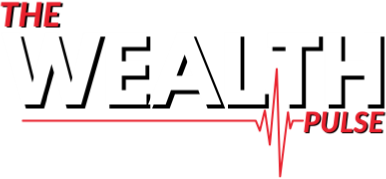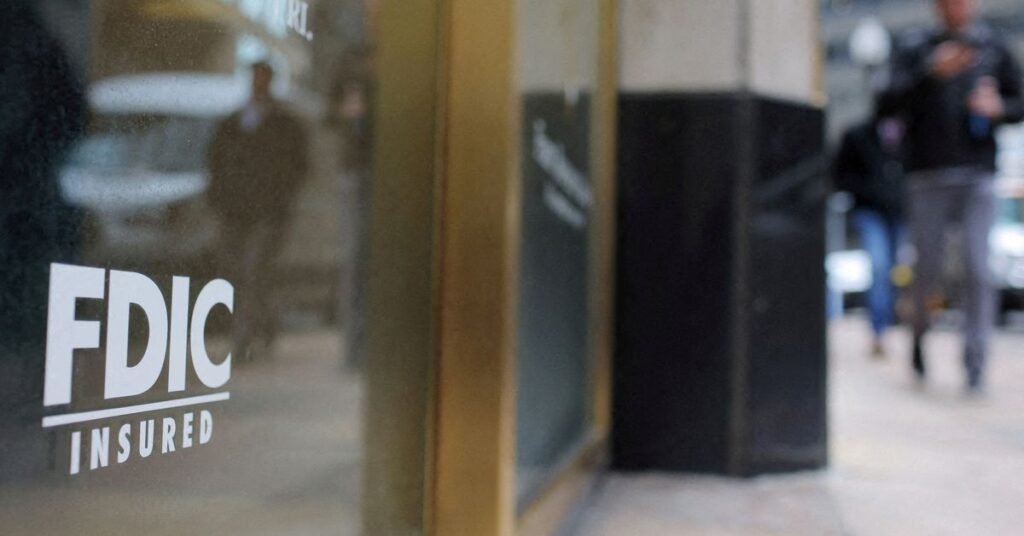March 22 (Reuters) – In america and lots of different international locations, the federal government ensures a specific amount of every buyer’s deposits within the occasion of a financial institution failure, to guard each shoppers and the broader monetary system.
With the collapse of Silicon Valley Financial institution (SIVB.O) and Signature Financial institution (SBNY.O) and the U.S. authorities backstopping all deposits at these companies, right here is the state of play of deposit insurance coverage in america:
WHAT IS THE U.S DEPOSIT INSURANCE LIMIT?
Presently, the Federal Deposit Insurance coverage Corp (FDIC)ensures deposits of as much as $250,000 per individual, per financial institution. That restrict was enshrined in legislation by the 2010 Dodd-Frank reform legislation handed following the 2008 monetary disaster.
Meaning, for instance, {that a} married couple sharing a financial savings account can be assured for as much as $500,000 in deposits. It additionally implies that $1 million in financial savings might be insured if the money is unfold throughout 4 completely different accounts at 4 completely different banks. Accounts the FDIC ensures contains checking and financial savings accounts, in addition to cash market accounts and certificates of deposit.
Buyer deposits at federally insured credit score unions are additionally protected as much as a minimum of $250,000 per particular person depositor by way of the Nationwide Credit score Union Share Insurance coverage Fund, which is run by the Nationwide Credit score Union Administration.
WHOSE DEPOSITS ARE NOT INSURED?
Usually talking, accounts exceeding the $250,000 restrict largely belong to entities that want a whole lot of money available to make payroll similar to small companies, nonprofits or municipal governments.
Many different investments, similar to shares, annuities or mutual funds, aren't protected against losses.
Greater than $9.2 trillion of U.S. financial institution deposits have been uninsured on the finish of final 12 months, accounting for greater than 40% of all deposits, in accordance with U.S. central financial institution information.
WHAT HAPPENED WITH DEPOSITORS AT SILICON VALLEY BANK AND SIGNATURE BANK?
The collapse of SVB on March 10 – the most important financial institution failure since 2008 – sparked issues over whether or not small-business shoppers would have the ability to pay their employees if the FDIC solely protected deposits of as much as $250,000.
Some 89% of SVB's $175 billion in deposits have been uninsured as of the top of 2022, in accordance with the FDIC.
On March 12, U.S. regulators together with the FDIC introduced that they might make all SVB and Signature Financial institution depositors entire, even these whose accounts exceeded $250,000, by way of a “systemic danger exception” designed to stop broader contagion to the U.S. banking system. Any losses to the FDIC's deposit insurance coverage fund will likely be recovered by a particular evaluation on banks, the FDIC mentioned.
Treasury Secretary Janet Yellen denied that the emergency actions meant {that a} blanket authorities assure now existed for all deposits, and mentioned throughout a congressional listening to that any future failure would want to pose dangers much like these seen at SVB and Signature to qualify for the exception.
In a speech to bankers on Tuesday, Yellen mentioned that the U.S. banking system was stabilizing and steps taken to ensure deposits in these establishments confirmed a “resolute dedication” to make sure depositors' financial savings and banks stay secure. She additionally clarified that the federal government may equally backstop smaller establishments in the event that they too posed contagion dangers.
WHAT IF I HAVE MORE THAN $250,000 IN MY BANK ACCOUNT?
Whereas people are prone to shedding their cash above the deposit insurance coverage restrict if a financial institution fails, the FDIC continuously arranges the sale of an ailing lender to a peer establishment, which might then take over all of the deposits. If a sale isn’t potential, the FDIC winds the financial institution down and pays out on the insured deposits. The method sometimes takes 90 days. Account holders can then can attempt to recuperate any uninsured deposits from the failed financial institution’s liquidated property.
WHAT ARE THE RISKS OF UNINSURED DEPOSITS FOR BANKS?
For banks, a excessive quantity of uninsured deposits pose their very own dangers. FDIC analysis from 2018 reveals that account holders with uninsured funds are extra delicate to dangerous information and extra rapidly transfer funds to guard them. Meaning when a financial institution is in hassle, it could see cash heading out the door when it wants it most.
Usually talking, regulators don't discourage banks from taking in uninsured deposits, as long as they handle that liquidity danger.
COULD THE GOVERNMENT RAISE THE DEPOSIT INSURANCE LIMIT?
Some U.S. lawmakers have mentioned Congress ought to take into account whether or not the next federal insurance coverage restrict on financial institution deposits was wanted within the wake of the collapse of SVB and Signature Financial institution.
Senator Elizabeth Warren, a Democrat, and Senator Mike Rounds, a Republican, have questioned whether or not the $250,000 deposit insurance coverage restrict remains to be acceptable.
However growing that restrict would require laws, which may face an uphill battle in a divided Congress heading into an election 12 months.
Authorities officers have mentioned the concept of accelerating deposit insurance coverage with out acquiring approval from Congress as they brainstormed varied approaches to fixing the turmoil in banking, in accordance with a Reuters report. Nonetheless, that concept was not universally supported and isn't seen as crucial by some officers.
Yellen on Wednesday that the FDIC was not contemplating offering “blanket insurance coverage” for banking deposits past the FDIC's present $250,000 restrict.
Reporting by Hannah Lang and Pete Schroeder in Washington; enhancing by Jonathan Oatis
: .

